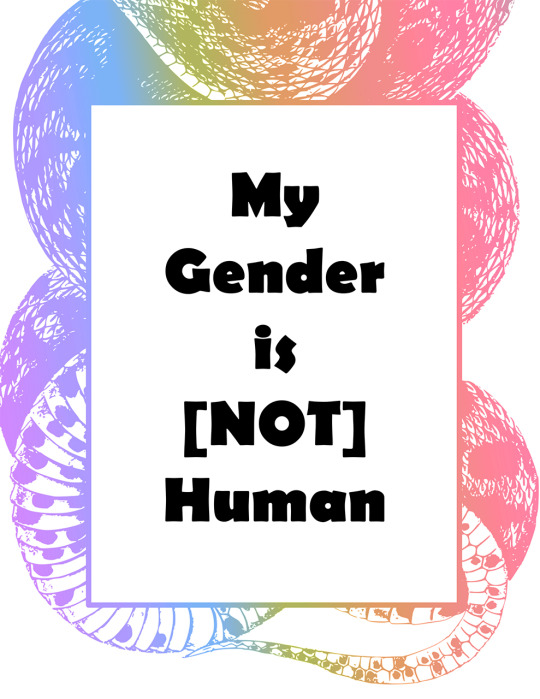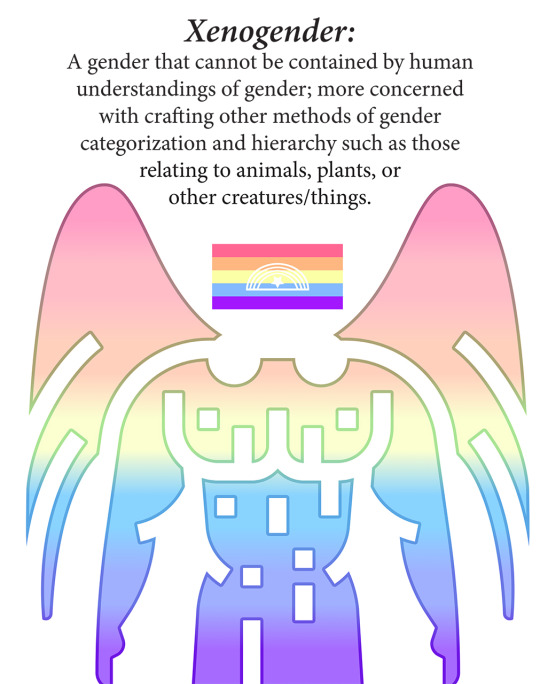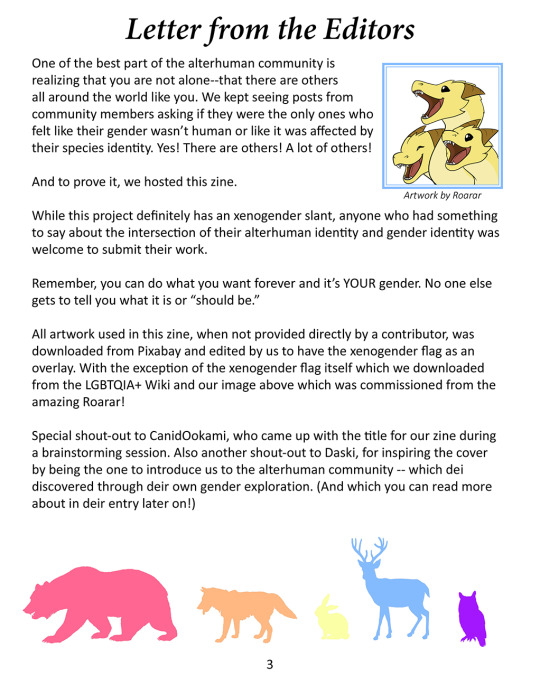This is my main, if you only want art @vinguistic is my art blog! || He/vim || 20 || if I follow you & we have wildly different content its probably bc I have a few sideblogs with diff things
Last active 60 minutes ago
Don't wanna be here? Send us removal request.
Text
The ehlers danlos syndrome person to historical costumer pipeline is or will be a thing and I shall explain why.
At some point one discovers that some sort of supportive structure around your torso feels incredibly comfortable and gives your tired muscles a rest. What’s the coolest and most non obtrusive torso bracing garment? A corset. Believe me when I say that when your torso has the structural integrity of a wet sack of jello, a tightly laced corset makes you feel like a god.
And because historical corsets tend to be more comfortable and are usually made with regular wear in mind, they are the natural choice.
Then you have the shoes. What shoes is someone with unstable ankles supposed to wear, you ask?Lace up boots, for stability. And due to their middle of the heel heel placement, historical lace up boots tend to be way more comfortable than the modern variety.Even the non healed ones, really. Couple that with the fact that Edwardian and Victorian boots are really really pretty…
And after the boots and the corset, it’s a very slippery slope.
Pretty soon you’ll be wondering how to hide your corset under your clothes for when an outer corset is not the vibe, and you’ll be buying yourself a corset cover. Or making one yourself. They’re a great starter project. But that looks weird with a fitted top so cool flowy blouse it is.
Then you realize wearing this with a skirt makes you feel intensely powerful but you don’t want to keep tripping over it so you add petticoats.
And then you realize your neck isn’t so great at holding up your head so you really need to find a hairstyle where your hair sits on top of your head instead of to the sides or to the back so that it’s balanced and you don’t get a neck ache. A high bun it is. Not too tightly, because your scalp is sensitive, but a high bun still works if you bobby-pin it in place.
And then one day, you look in the mirror and you’re dressed like Anne of Green Gables.
And you’ve never looked cooler.
19K notes
·
View notes
Text
Part of the reason I'm so adamant about encouraging people to get comfortable with bugs, my own interests aside, is because we cannot have a bright, solarpunk future without them.
A green future is not a bugless future. It is, in fact, a fairly bugful future. If you care about ecological stability, then you need to start with bugs, because they're the most at risk with our current use of pesticides.
17K notes
·
View notes
Text




🍎 || garrettbv
[simple id: four gifs showing a 2000's tv in the shape of a red apple, with the front being able to open and close to cover the screen. /end id]
9K notes
·
View notes
Text
Art is a sport
One common thing I see among artists who are just starting out is that they are very precious about their work -- ironically, way moreso than experienced artists. They need to get every line JUST right, because in their mind, getting that line just right is what stands between the piece being bad and it being good. I was like that too, for so long that I'm still struggling to catch up because of how it hampered my progress.
Being precious about every line is kind of like a track sprinter starting a run, but then restarting every time their foot lands in any slightly suboptimal way. This is comes off as silly, because we know that the "unit" of what they are doing is a sprint, and that they would make their greatest progress by finishing the full sprints, because that's how they train.
Well, similarly, the "unit" of art is a finished piece. What stands between the sprinter and the time they want isn't 1 individual step, but 1000 sprints. What stands between the beginner artist and making art they like the look of isn't that 1 line, but, i'm sorry to say, 1000 pieces.
Taking note of any mistakes you made afterwards is something done by both the experienced artist and experienced sprinter -- this is healthy and helps you improve. But you can do that later, after you're done.
That line is good enough.
6K notes
·
View notes
Text
i'm surprised to not have seen other disabled people mention the hell that is itchy skin. like itchy sensation is soo annoying and scratching usually doesn't make it any better and it can stay for hours and hours and days and weeks and happen for so many different reasons and honestly we need more sympathy for the itchy sensation havers like. overall unpleasant symptom 0/5 do not recommend
84 notes
·
View notes
Text
Dropped a small potato n started crying how’s everyone else doin tonight
120K notes
·
View notes
Text
I saw a post that described the sentiment a very long time ago at this point, but it gives me hope.
I love humans. I love that it is built into our DNA to pattern-recognize faces. We are such social creatures that we look at a tree and find a face, we find a face in everything. We just actively look for others to love and be and celebrate life with. We need the community.
And like! We saw big vicious predator animals (cats and dogs) and went "fluffy! I am gonna keep you" and gave them food and, because they're also social creatures, they were like "yeah, okay ¯\_(ツ)_/¯"
We look to the stars for more friends! For adventure, for hope.
Our brain is also so wired for pattern recognition that sometimes, among the white noise, it fills in voices, or music. Not necessarily in a psychosis way, but some people's brains hear silence and just fills it with music! We have such a tenancy for patterns that we just make something out of nothing.
Things are really scary all over the world rn. But sometimes I feel a bit better thinking about how much love still exists in the world. People are not born cruel. We can fix things. We will get better.
466 notes
·
View notes
Text
while it's very important to understand who you are, i wanted to point something out that i see queers stressing over, especially young queers, which is that you do not have to label every part of your identity, or any part of it at all. if you've tried every label and nothing fits you, if you feel like you have an experience that sits outside of what others defined, if you feel like you relate to an experience but don't have it exactly, if you feel like you fall between the cracks of identities, if you feel like you could never possibly be defined by labels... that's fine. that's more than okay. if you just don't understand a part of you, but it's there and not causing you harm, you don't have to label it if you can't or don't want to. you can experience something without having a word for it.
i see young queers stressing over trying to figure out whether or not they're gay, lesbian, bisexual, pansexual, polysexual, omnisexual, trans, nonbinary, genderqueer, aro, ace, genderfluid... it's okay to identify as these things if you know that they're you. but you also don't have to identify with anything if you don't want to. you don't have to figure out how to label every aspect of your identity. you don't "have" to figure any of this out if you don't want to or if it stresses you out too bad. it's important to know yourself- knowing yourself also includes acknowledging that labels like this may not be for you if you find you just can't make them fit no matter what. that's an okay experience, too. it's okay to live outside of those boundaries altogether and just be yourself, without words to define what makes you you.
3K notes
·
View notes
Text
Today I learned that Van Halen have that rider in their contract about “a bowl of M&Ms with all the brown ones removed” in order to know at a glance if the promoter read the entire contract. And the reason they do THAT is because they once had a stage collapse because a promoter hadn’t read the proper way to set up all the specific technical stuff.
So if the band goes in the dressing room or catering and sees brown M&Ms, they know they have to double-check the stage setup for safety.
312K notes
·
View notes
Text



My Gender is [NOT] Human Zine is now available for download!
Xenogender: A gender that cannot be contained by human understandings of gender; more concerned with crafting other methods of gender categorization and hierarchy such as those relating to animals, plants, or other creatures/things.
This zine is a collection of artwork, writing and more created by alterhumans and nonhumans to express both their species identity, gender, and how they intersect. While this zine has an xenogender slant, everyone who had something to share about how their species and gender overlap were encouraged to submit pieces!
Speaking of which: Thank you to everyone who submitted works! It means a lot to us that others think our project is valuable and are willing to use their time and ability to be a part of it! The community is so talented and varied, we hope this zine serves as a comfort for anyone who feels alone in their alterhuman and gender identities.
We created this zine to be an accessible pdf. Every entry is bookmarked for easy browsing, every image contribution is accompanied by alt text and we’ve done our best to battle against Adobe Acrobat's reading order to make sure it was logical! We’re also rather proud of figuring out how to make the content warnings also be links - so skipping ahead is only a click away.
Download it now for free here!
351 notes
·
View notes
Text
I know there's a literacy crisis or whatever but that doesn't give you the right to go after people with intellectual disabilities and people with brain fog and learning disabilities. Sometimes we need help understanding something, we might ask "dumb/obvious" questions. It doesn't mean we aren't trying to pay attention or use critical thinking. Responding to someone's question on the internet with snobby wisecracks about how the person should learn to read or go back to 1st grade is rude at best and ableist at worst. Just ignore the question if you don't want to answer. Don't flatter yourself saying how progressive you are if you turn around and make fun of your friend for asking a question after a movie.
My partner let's me pause and ask questions during shows and movies bc he loves me and wants me to enjoy what we're watching too instead of sitting there confused cause my brain couldn't catch up. Or I lost attention for a few seconds and missed something important.
7K notes
·
View notes
Text
the statements "clothes don't have gender" and "clothes can and do invoke gender dysphoria and euphoria for many people" can and should coexist.
78K notes
·
View notes
Text

This was great last year. At least a handful of people are trying to bring it back this year, and I'm sure gonna do my part.
My comic will be terrible and glorious as the dawn. Can't wait.
442 notes
·
View notes
Text
transreads.org is a fantastic resource for queer literature and history, and the best part is that it's FREE! There's no excuse to be ignorant when the information is being handed to you like this.
Leslie Feinberg also has all of hir works free online if you are particularly interested in lesbian history and literature. They are available as downloadable PDFs, and I believe they are on the internet archive aswell.
transreads.org also has a great section on Palestinian queer literature if that's something that interests you, it's important that we learn about queerness outside of America. I've dabbled in a few of these books and essays and poems and they're very cool! I really do enjoy learning about queerness in other cultures, I hope you all can find joy in that too!!
if you have any good queer resources that you'd like to share pls comment or add it to a reblog!! I'll probably make a bigger masterpost later, or perhaps a Google document.
3K notes
·
View notes
Note
Hi! I'm in the process of creating a character with Down Syndrome and was wondering what some of the typical areas of struggle someone would have with a mild to moderate form of intellectual disability. Thank you! (Sorry if the question is kind of vague, I'm still at the starting point for doing research for this character)
Hi! I'll answer the best I can with what I've learned up to date, but if you have more questions, you're welcome to ask them!
I'll be making an actual post on ID (Intellectual Disability) at some point, but for now I'll try writing as simple and informative of an answer as possible.
I'm going to be assuming that your character is an adult, but if it's not the case, I can adjust my answer. Children and adults interact differently with their ID; some young children with mild ID can even go unnoticed, while as an adult, it's more obvious.
Essentially, ID influences three domains: conceptual, social and practical. The level of severity indicates how much the person is affected in these three areas of functioning.
The conceptual domain includes academic skills (reading, writing counting, time, etc) and executive function (planifying, prioritizing, cognitive flexibility, etc).
Some examples I've seen or heard of: going to the grocery store with their sibling because they struggle to understand the value of money, having their parent read legal documents with them and explaining it to them because they don't understand complex words or long paragraphs, planning their week with a SPED technician, using pictograms or visual aids for daily chores (as opposed to a checklist), using a text-to-speech program to navigate the internet...
Most people I've met with ID didn't finish their high school. In cases where the person is unable to assume responsibilities due to their difficulties, such as taxes or groceries, someone else may do it for them entirely.
The social domain includes maturity (emotional regulation, understanding of risk in social situations, gullibility, etc) and communication skills (verbal and nonverbal language, reciprocity, social cues, etc).
Some examples I've seen or heard of: using an AAC (Augmentative and Alternative Communication device) or sign language, butting in conversations naturally, getting yelled at due to not picking up the signs of annoyance or anger from the other person, changing the topic without realizing it if the conversation was too complex for them, feeling emotions very strongly and struggling to control their reactions (can be from anger or excitement), having someone simplify what other people are saying because the language they are using is too complicated...
When describing your character and the way they act, please remember that formulations such as "mentally 7 years old" do not represent their reality adequately and can be seen as offensive. While they may behave like a 7 year old child would, if they are a 42 year old person, they are exactly that; a 42 year old person.
The practical domain includes daily tasks (getting dressed, eating, elemination, etc) and more professional tasks (legal or health care decisions, working, groceries, raising a family, etc).
Some examples I've seen or heard of: only cooking with their siblings because they always forget to turn the stove off or can't manipulate knives safely, having their parent accompany them to every appointment in case they forget to mention something or the doctor says something they don't understand, working in special organizations that adapt all their tasks to their worker's special needs, living with their parent to help raise their own child...
Note that people with mild to moderate ID don't need as much support for basic needs than people with severe to profound ID. They may need reminders or guidance, but can generally eat, get dressed and eliminate without direct assistance. People with mild to moderate ID can even be caretakers themselves!
That would be all I can write without turning this into a college lecture- if I didn't already. This was fun to answer, thank you so much for the ask!
There's also the actual ID diagnostic criteria, other Down Syndrome symptoms and comorbidities I could've elaborated on, but I suggest you to look that up yourself! It's a very interesting read. If you have any other questions after this, however, I'd love to answer them!
44 notes
·
View notes

